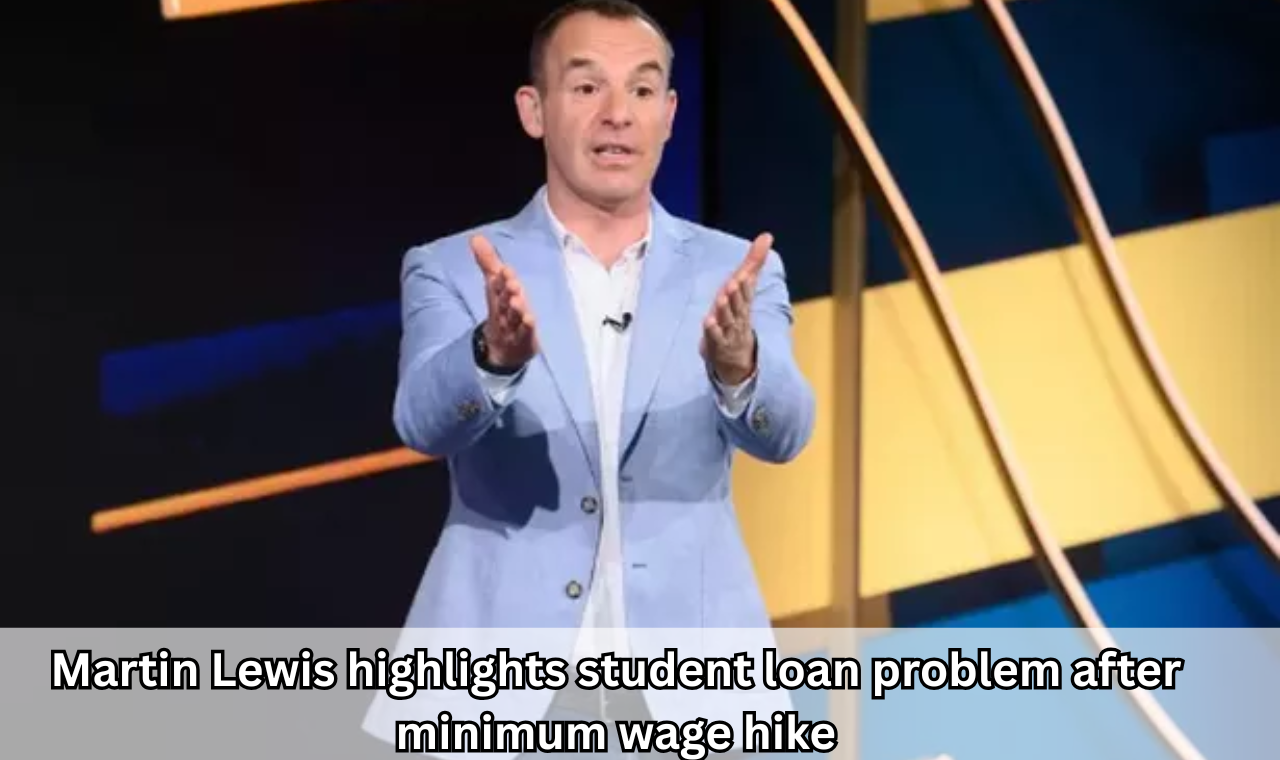In the wake of the UK’s recent minimum wage increase, Martin Lewis, founder of MoneySavingExpert, has raised concerns about the unintended consequences for low-income workers, particularly regarding student loan repayments. With the national minimum wage now set at £12.21 per hour, many workers earning this wage could find themselves suddenly liable for repaying their student loans a situation that was previously not a concern for many.
The Minimum Wage and Student Loan Repayments
The UK government announced an increase in the national minimum wage for workers over the age of 23. As of April 2025, workers in this category are now entitled to earn £12.21 per hour. For a full-time worker, this translates to an annual salary of just over £25,000. However, this increase has had a ripple effect on individuals who have previously been below the threshold for student loan repayments. Student Loan Repayments page.
Under current rules, student loan repayments are required once a borrower’s income exceeds £25,000. Before the wage increase, many workers earning just below this figure were not required to make any student loan repayments. But with the rise in the minimum wage, many of these workers are now crossing that threshold. As a result, they will be required to start making repayments, which could have a significant financial impact on their take-home pay.
The Repayment Threshold: How It Works
The UK’s student loan system is designed to require graduates to pay back a percentage of their income once they exceed a certain salary threshold. The repayment rate is typically 9% of income above £25,000 for Plan 2 loans (which apply to most students who began their courses after 2012). This means that a full-time worker earning just above the new minimum wage will be paying back student loans at a rate of 9% on the amount earned above £25,000.
For example, a worker earning £25,500 would need to pay 9% of £500, or £45, annually towards their loan. While this amount might not seem significant at first glance, for many low-income workers, every penny counts, especially when you consider the rising cost of living in the UK.
What Does This Mean for Low-Income Workers?
While the wage rise is undoubtedly a positive step for workers struggling with inflation and cost-of-living pressures, it has led to an unexpected issue for many. For those who were previously earning just below the £25,000 threshold, the increase in wages could mean that a larger proportion of their earnings is now diverted to student loan repayments.
Martin Lewis has expressed his concerns on this issue, highlighting that workers earning the minimum wage now face an additional burden that could affect their financial stability. “The rise in the minimum wage is a welcome change for many, but for some, it comes with the unintended consequence of triggering student loan repayments,” said Lewis.
The financial implications could be particularly difficult for younger workers and those in lower-paying jobs who were relying on not having to pay off student loans until they reached a higher income level. For them, the wage increase could effectively nullify the benefit of the higher wage, especially when other living expenses like rent and utilities continue to rise.

The Long-Term Impact on Loan Repayments
The increase in minimum wage could also affect the length of time it takes for individuals to pay off their student loans. Higher repayments mean that borrowers will reduce their loan balances more quickly, which sounds like a positive outcome. However, the added financial strain could make it harder for people to make ends meet in the short term. The government’s student loan repayment terms are designed to stretch out payments over a long period — typically 30 years — but any increase in repayment obligations could create additional financial stress for those already struggling to manage their budgets.
Moreover, the loan repayment system is structured so that outstanding balances are written off after 30 years, or if the borrower turns 65, whichever comes first. For some, the higher repayments triggered by the wage rise might accelerate their loan payoffs, but others may still find themselves in debt for decades. This has led to growing concerns about the fairness and sustainability of the UK’s student loan system.
Calls for Reform
As the government continues to raise wages in line with inflation and living costs, many are questioning whether the student loan system is still fit for purpose. While increasing wages is a crucial step toward ensuring that workers are paid a fair rate for their labor, it may be time to reconsider how student loan repayments are structured.
Critics argue that the system places undue pressure on those who are earning modest wages and that the current repayment threshold is no longer sufficient for the reality of today’s economy. Some advocates are calling for higher repayment thresholds or a re-evaluation of how student loans are calculated and repaid, especially in light of recent wage rises.
Conclusion
While the rise in the national minimum wage is a positive development for workers, it has unintended consequences for many graduates who will now be required to repay their student loans. As Martin Lewis highlighted, this could place additional financial pressure on low-income workers, especially as living costs continue to rise. The current student loan repayment system may need to be reassessed to ensure it remains fair and sustainable for all.

Pankaj Kumar is a skilled content writer at OTE News, focusing on breaking news, technology, and socio-political developments. With a background in Mass Communication, he brings a balanced perspective to his articles, ensuring clarity and reliability. Pankaj has a knack for simplifying complex topics for readers.
In his free time, he enjoys photography, traveling, and experimenting with new cuisines. His curiosity and dedication to truthful reporting make him a valuable contributor to OTE News.




